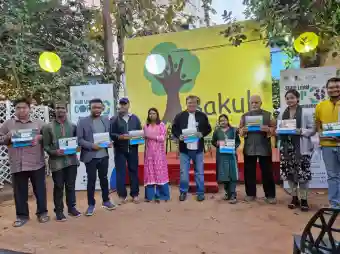

New Delhi, August 5: The Ministry of Health and Family Welfare has informed that the Central Drugs Standard Control Organisation is not in receipt of information about such rumours.
It has further informed that the drug Paracetamol is not banned in the country although in the recent past various Fixed Dose Combinations, including such combinations of Paracetamol with other drugs, have been banned in the country, and the list of all such banned combinations is available on the website of the Central Drugs Standard Control Organisation (www.cdsco.gov.in ).
The National Pharmaceutical Pricing Authority (NPPA) under the Department of Pharmaceuticals fixes and monitors the prices of drugs, including OTC drugs, under the Drugs (Prices Control) Order, 2013 (“DPCO, 2013”).
For formulations that are listed in the National List of Essential Medicines issued by the Department of Health and Family Welfare and incorporated in the First Schedule to DPCO, 2013, including OTC formulations, NPPA fixes the ceiling price and revises them annually based on the Wholesale Price Index (all commodities).
All manufactures, importers and marketers of scheduled medicines are required to sell their products within the ceiling price (plus applicable local taxes) fixed.
For new drugs (i.e., formulations launched by existing manufacturers of a medicine listed in NLEM by combining it with another drug, or by changing the strength or dosage or both of such medicine), including OTC drugs, NPPA fixes the retail price. Such retail price is applicable to the applicant manufacturer and marketer, who are required to sell these drugs within the retail price fixed.
For other non-scheduled formulations, including non-scheduled OTC formulations, manufacturers are required not to increase the maximum retail price (MRP) of such formulations launched by them by more than 10% of MRP during the preceding 12 months, and NPPA monitors their MRP with a view to ensure the same.
The Ministry of Health and Family Welfare has informed that to ensure availability of essential drugs and reduce out-of-pocket expenditure of patients visiting the public health facilities, including government hospitals and rural primary health centres, Government has rolled out the Free Drugs Service Initiative under the National Health Mission. Under this, financial support is provided to States and Union territories for provision of free essential medicines in public health facilities based on the requirements posed by them in their Programme Implementation Plans within their overall resource envelope for the said Mission. Support under the said initiative is available for procurement of drugs and strengthening or setting up of robust systems of procurement, quality assurance, supply chain management and warehousing, prescription audit and grievance redressal, and for the dissemination of standard treatment guidelines and establishment of the information-technology enabled platform named Drugs and Vaccine Distribution Management System (DVDMS), which is used for monitoring the actual status of procurement and availability of essential medicines. To facilitate monitoring of supply chain management activity at the national level, a central dashboard has been developed. Some States have also implemented the roll-out of the DVDMS portal till Sub Health Centres for monitoring the status of procurement and availability of essential medicines.
The Ministry of Health and Family Welfare has recommended facility-wise Essential Medicines List to be made available at public healthcare facilities, including government hospitals and rural primary health centres. The recommended Essential Medicines List for Sub Health Centres, Primary Health Centres, Community Health Centres, Sub-District Hospitals and District Hospitals consist of 106, 172, 300, 318 and 381 drugs respectively, with flexibility to States to add more medicines.
To ensure uninterrupted supply chain of essential drugs in government hospitals and rural health facilities, the Medical Stores Organisation (MSO) / Government Medical Store Depots (GMSDs) has active rate contracts for 697 drug formulations. MSO has 1,152 registered indenters across India, including government hospitals and rural primary health centres, which may place demands for supply of drugs to MSO/GMSDs through MSO-DVDMS application software four times in a financial year.
This information was given by the Union Minister of State for Chemicals and Fertilizers Anupriya Patel in Rajya Sabha in reply to a question today.